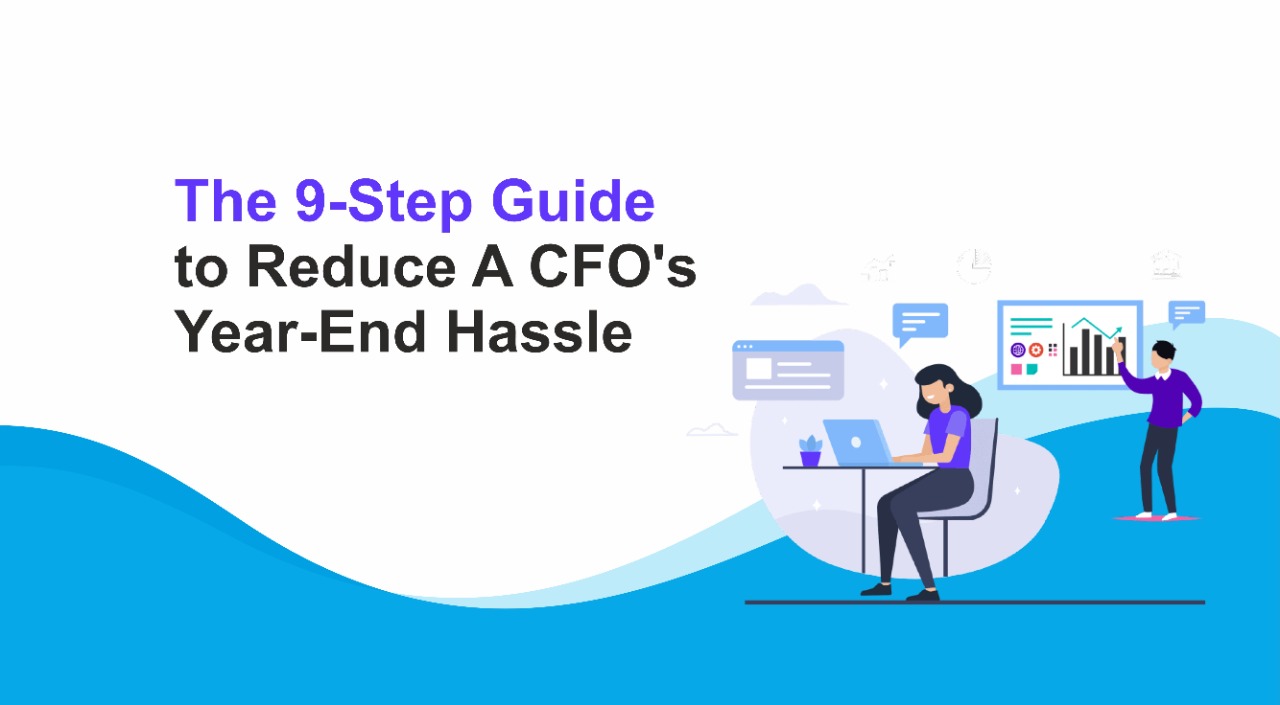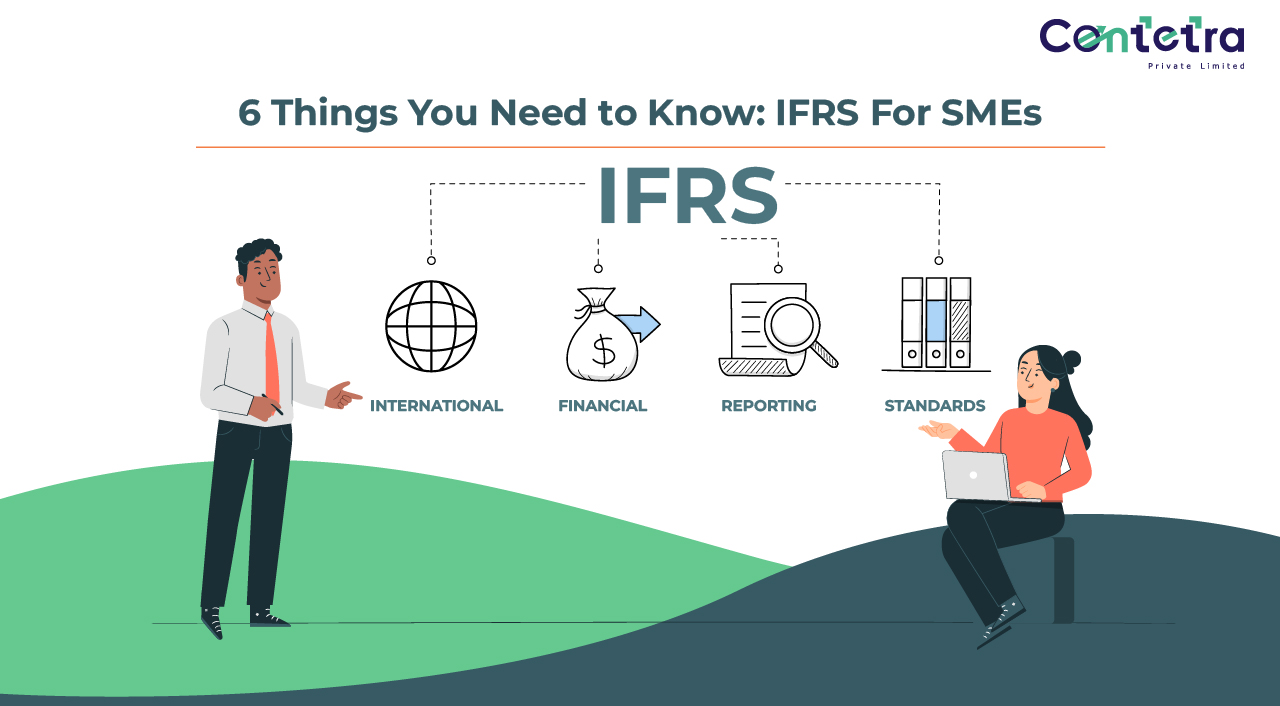Did you know that Byju’s, India’s biggest startup (with a valuation of a whopping $22 billion😲) has been in a scoop with the Ministry of Corporate Affairs (MCA) due to a delay in filing their consolidated financial statements for the year ending March 21? MCA even went on to send a letter to the management asking them the reasons behind this 17-month delay.
Beyond the legal and financial implications of delaying the finalization of accounts like fines and prosecution, companies can also face serious repercussions like losing their market standing and the trust of all stakeholders. This is why it is crucial for the finance teams to prioritize their year-end book closure and race against time to meet those deadlines.
Year-end for us is synonymous with overwhelmed accountants, tedious reconciliations and the usual email ping pong. At the centre of this chaos is the CFO. Every year the finance team goes through hell and beyond during year end and promises themselves that they will not repeat this the next year. But unfortunately, it’s the same story year after year and the CFO is expected to ensure the safe evacuation of their finance team through this hurricane.
What if I say that as a Finance leader, you can ensure that there is a way out to reduce your year-end hassle?
The CFO is not just expected to deliver the annual reports to the board but also ensure that the goals of the multiple stakeholders are met.This process is not just high-risk in nature but also excessively cumbersome when done without any planning.
To ensure that this critical aspect is done without any delays and most importantly, without compromising the accuracy of the process, we have outlaid 9 steps which you must implement to reduce your year-end hassle while ensuring that all stakeholder requirements are met on a timely basis.
- Appoint an audit coordinator:
The first and foremost step to ensure no lags in communication and timely delivery is to appoint an audit coordinator. The focussed role of the Audit Coordinator is to manage the whole audit process and coordinate both (interim and final) visits with the audit team and should not be assigned any other tasks. The person may not be particularly from Finance team but should be aware of the dynamics of the company. Usually, you may find the ideal person in the accounts payable team (PS, they’re more popular than the CFOs) or someone with strong interpersonal and management skills.
- Finalizing the draft of Annual Report well before the deadline:
Multiple stakeholders are invested in the financials of the company and are eagerly waiting for the annual reports to understand in what direction the organization is moving. Which is why CFOs need to ensure that the annual report is prepared and reviewed well before the scheduled Board Meeting. To make sure that this is done, they must work backwards on the timelines to close the books of accounts.
- Time your adjustments accordingly:
Irrespective of however automated your processes are, every organization passes adjustment entries during the quarter and year-end. While we understand it’s a hustle period and the accountants are in a hurry to reconcile balances, as a senior leader you must make sure that your finance team keeps a track of those adjustments i.e., the date, the nature and amount. This will make it easier for the auditors to trace those adjustments leading to minimal back and forth with the finance team.
- Calculating the added value in inventory:
It is advisable that stock count is done as a continuous process rather than just a periodic activity (i.e., quarter end or year-end). It is better to practice a Rolling stock count (throughout the year) and keep the books updated accordingly.
One of the most time-consuming activities in an audit is to estimate the value of inventory. In the absence of a definite number, auditors tend to follow a conservative approach which may not always be a favourable position for the company. Which is why it is better to calculate the value addition at different stages of inventory (Work-in-progress, Finished goods) which could save hours of audit time.
- Functional Fixed Asset Register:
CFOs must at all costs, avoid a scenario where, during year end, an adjustment entry is passed to adjust the written down value of fixed assets due to anomalies in its valuation detected by the auditors. Such an adjustment entry would not just impact the bottom-line (Net profits) but also hamper the taxes for the period.
The key to ensure this, is efficiently maintaining a fixed asset register (which even though mandatory both by the Companies Act, 2013 and the Income Tax act, is considered a bane by the Finance team). A key personnel needs to be assigned to maintain the FAR and conduct periodic valuation of the Fixed Assets to capture any anomalies. This activity is also essential for a business to forecast its Net Cash flows from multiple projects.
- Know the Importance of Internal Auditors:
The most efficient step to reduce the year-end hassle is to appoint an In-House Audit Team. Internal auditors can significantly ease out the audit process. As they are familiar with the working of the company, they will be efficient with providing training to new accounting staff, introducing cost-saving exercises, and coordinating with external auditors.
“Today, one of the biggest headaches of a CFO is to ensure that all employees are aligned with the organization processes. Even at established corporate houses, this usually calls for the assistance of an expert. To demonstrate, we enabled finance transformation at one of the leading e-commerce giants of the world by setting up their entire finance shared services for their seller portal- right form training 1000+ resources on our learning platform to making them ready for deployment.”
- Prompt Management Letters:
It is advisable to insist the audit team to send the management letters promptly so as to avoid any tardy rectification in the audit report at the last moment. In a similar fashion, Finance leaders must also prioritise to send out the replies to those management letters immediately to resolve the discrepancy.
- Derive more value from the Interim Audit:
In addition to the external auditors, it is important to conduct interim audit to test out compliance with new systems in the business. Exponential growth does not wait for you to set up processes and new challenges keep cropping up – especially for the finance team who are sometimes expected to derive business insights posthumously – without any control on process of data collection.
“At one of silicon valley’s AI unicorn valued at over 3 billion dollars, we ran point on all their finance operations and ensured that during an interim audit all preliminary audit work is conducted prior to the fiscal year-end (it is safe to say that both the finance team as well as the auditors have since then had pretty stress-free year ends 😊)”
- Prevent Staff Burnout
As someone who is responsible for the year-end process and accountable for the accuracy of the same, CFOs must ensure that their finance teams are vigilant at all times! The year -end being a time of late nights and extreme pressure, employees are bound to knock themselves out with work and are often at the ends of fatigue and lethargy. An unsatisfied and overwhelming workspace would increase the chances of human errors. At such times, it is the responsibility of the CFO to keep the finance team’s spirits high!
We hope you found this to be an insightful read. Follow me on LinkedIn: Ramanujam Narayan for more content about #internationalGAAP #IFRS #BusinessFinance #FPA #FinanceStrategy and more!















This is a very informative and helpful blog I have read in a very long time. It gives all the right information a person needs to know. I recommend you read this blog.